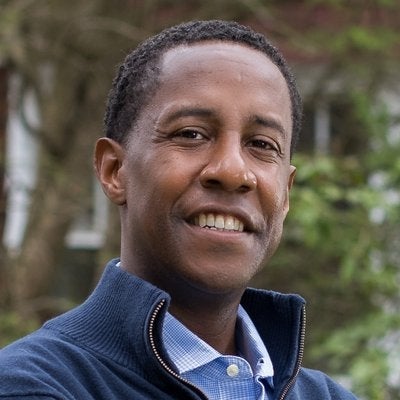As they make their case for shifting to single-payer health care, two Democrats hoping to seize the Corner Office next year are pointing to soaring premium increases for individuals who purchase insurance through the Massachusetts Health Connector.
After President Donald Trump last week announced he would end subsidies the federal government pays monthly to insurers to defray the costs of some plans — known as cost-sharing reduction payments — the Health Connector on Thursday said it would raise its rates for next year more than originally anticipated, to cover the lost funds.
The decision means some 80,000 people are facing premium increases of about 26 percent.
Jay Gonzalez and Setti Warren, Democrats vying for their party’s gubernatorial nomination in 2018, each said the move highlights affordability problems in the state’s health care system and called for a single-payer model instead.
“Too many people in Massachusetts are already struggling with health insurance they can’t afford to use,” Warren, the mayor of Newton, said in a statement to the News Service. “The political games being playing [sic] in Washington will only make it worse until we recognize that the only way to ensure health care as a basic right is to implement a single-payer system right now. Across the Commonwealth, I’ve talked to too many people who already have to decide between filling a prescription or buying food or between scheduling a doctor’s appointment and making a mortgage payment. That’s wrong. If Health Connector rates shoot up next year, even more Massachusetts families will be left behind.”
A report released last month by the Center for Health Information and Analysis found that health insurance premiums in Massachusetts increased by an average 2.6 percent in 2016, to $464 per member per month, while average regional income increased by 2.9 percent and inflation was 1.5 percent. Health insurance cost-sharing climbed 4.4 percent to $49 per member per month, or $587 annually.
Gonzalez, who was CEO of the health insurer CeltiCare, called Trump’s decision to end the subsidies “terrible” for Massachusetts and the country.
“It’s going to put a real burden on a lot of people, thousands of people in Massachusetts, and possibly make their health insurance unaffordable for them, and that’s a bad outcome,” Gonzalez said. “So we should be doing, and our governor should be doing, everything he possibly can to prevent this from happening in Washington, and advocating as much as we can for Congress to overturn this decision and meanwhile, actually have a plan for how to deal with it here.”
Baker wrote a letter to the state’s Congressional delegation Thursday, informing them of the higher Connector rates and asking them to “work with your colleagues and with states to make health care reforms that will preserve and expand gains in coverage, while controlling costs for consumers.” In the letter, he said his administration “is committed to taking whatever steps are necessary to protect the stability of the health insurance market for 2017” after Trump ended the cost-sharing subsidies.
Baker on Wednesday joined nine other governors on a letter to Congressional leaders, urging them to fund the payments through 2019.
Last month, the Baker administration submitted a waiver request to the federal government, seeking to establish a “premium stabilization fund” in lieu of the cost-sharing reduction payments.
The Swampscott Republican also proposed MassHealth and commercial market reforms this summer, the bulk of which were rejected by lawmakers who said they wanted to develop their own plans. The Legislature did agree to impose new employer assessments to help cover the cost of workers who opt for MassHealth coverage instead of insurance through their employers, and a group of senators this week released a health care bill they hope to debate in November.
Gonzalez, of Needham, said he wants the state to “implement a single-payer system that actually achieves better outcomes for people, is simpler for people to navigate and is financially sustainable over time,” and that Baker “keeps putting Band-Aids on a system that has gaping wounds.”
“The system we have today is not working for people, and it’s not financially sustainable,” said Gonzalez, who served as Gov. Deval Patrick’s budget chief. “It’s crushing state government in terms of its costs, it’s crushing businesses, and we need leadership on this issue. We need a governor who’s actually going to try to aim higher, try to be proactive about taking us to a place where we reform our system in a way that’s going to work better for people and be sustainable, and that’s what my focus would be as governor.”
While the state Democratic Party includes single-payer health care in its platform, Democrats who have run the Legislature for years have not embraced the idea and changing that dynamic would be a big lift for any governor.
Sen. Jamie Eldridge and Rep. Denise Garlick have filed bills to set up a state-run, “Medicare for all” single-payer system in Massachusetts. Garlick’s bill (H 2987) has 43 cosponsors, and Eldridge’s (S 619) has 37. There are currently 196 people in the Legislature.

